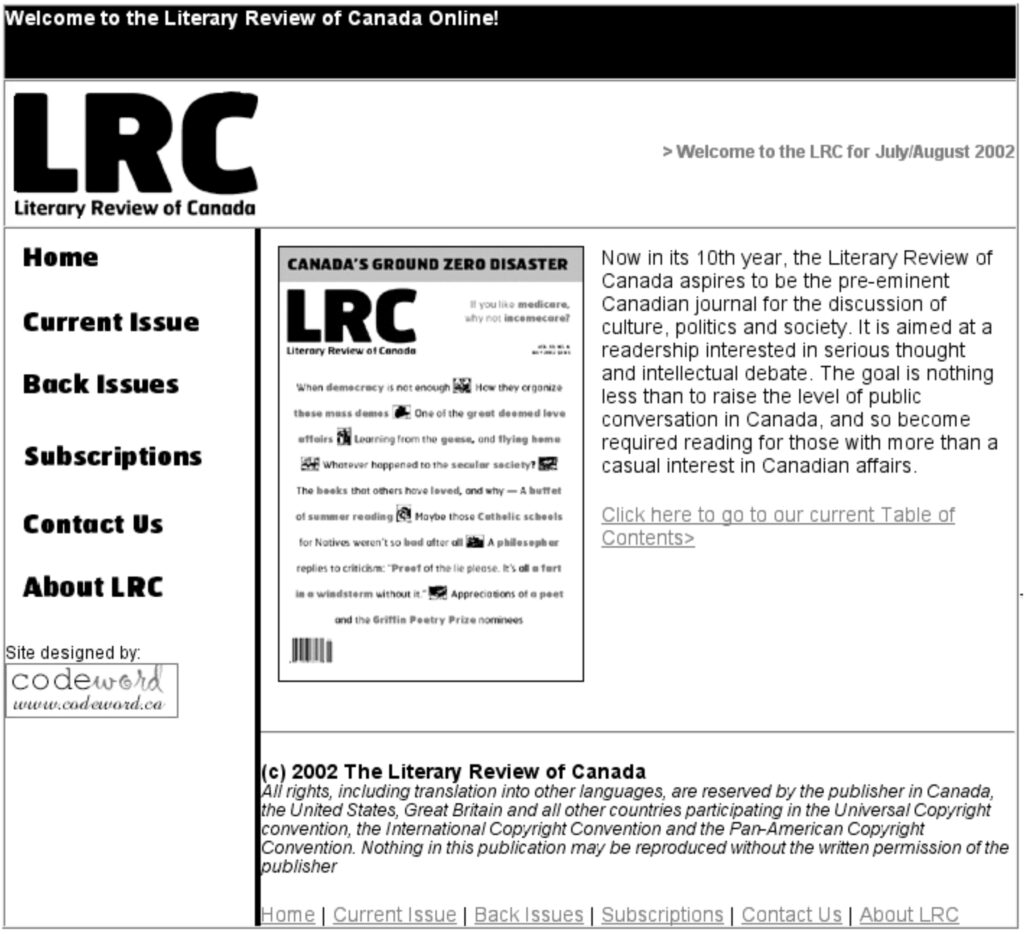So you are a writer, and someone tells you they’ve devised a way for your work to reach hundreds—no, make that thousands—of new readers over a much wider area than the one in which your work is currently distributed. The quality of reader also will likely be higher, not only because your writing will be promoted to readers interested in your specific form or genre of writing. Okay, you admit you are getting excited: Where is this utopia of readers anxiously awaiting your finely crafted work? Oh, they are online, not on paper.
What is the seductive quality of paper that makes every other medium seem less attractive? Despite the fact that most of us use the Internet at least weekly, if not daily, and that we all read stuff online (even if we tell others it is only the headlines), somehow when it comes to being published, only print on paper will do.
Upon scrutiny, the intricate arguments we construct to defend our print addiction are a bit ridiculous. First, there is the claim that a print publication will be around forever, whereas pages on the World Wide Web may somehow disappear. This contention may have held some weight in the early days of the Internet with its ever-changing site construction; but now the fewer and stronger domains often last longer and hold more content than any single print issue—not to mention they are searchable and e-mailable and for God’s sake printable, if you have to have a flammable copy for your scrapbook.

Following the permanence argument, there is the slightly more legitimate debate about reading on-screen. Even I would agree that paper is easier to look at than a medium that emits its own light source. Yet it is not as if advocates of online publishing are saying that Web sites are better than their printed counterpart; they are just saying they are only another venue. Maybe the suspicion of Web sites has been aggravated by the early e-book advocates and their idea of a library in a single volume idea, an appalling notion to all bibliophiles, including this one. But really, why would anyone who loves writing want to get rid of printed books? Then again why would anyone who loves writing not welcome another medium in which to publish?
You can understand that I—the founder of the online literary journal Another Toronto Quarterly—often find myself on the defensive, extolling the virtues of the Web and its borderless capacities. Yet the print addiction is so powerful that I frequently and repeatedly succumb to it myself, sending my own best work to the best literary journals, which are primarily paper-based. Even when writing nonfiction, the same frailty occurs. A few weeks ago I pitched stories to a print magazine; the editor rejected them on the grounds of timeliness but suggested that I try them on their Web editor. And even though the magazine has a great Web site, and despite the fact that I was once an online editor at Saturday Night magazine, I still had a moment of disappointment and wondered if I should find another print magazine instead. Then I thought of my experience at Saturday Night, with an inbox usually empty of submissions as slush for the print version appeared en masse. And of the fact that this site I was thinking of skipping was really the most suitable destination for these particular stories. Was I really going to spend time finding a less worthy outlet simply because the stories would be in print on paper? Of course not, and get over yourself, I said to that inner voice.
Although the fascination with print on paper has been weakening as we become accustomed to the new medium and realize its permanence, print snobbery still exists for several reasons. Primarily, there is the notion that there needs to be a hierarchy of forms of publishing, paper over Web, rather than coexistence between the two. But other details add to the problem. For commercial magazine sites, the lack of revenue—for Web sites in general, not just content-driven publications—means that often they do not pay for content, and their sites are unable to attract writers. If Web sites paid even paid a token amount (some do, and are to be applauded), they would better be able to attract better writers, more readers and, theoretically, increased profit and reputation.
Another problem is the lack of established writers who could set an example by publishing online. True, most of the writers I am thinking of are beyond the need to hustle. They no longer need these new venues. Nevertheless, some of the subtle disregard I have heard (or worse, feigned ignorance—“What is this Internet you speak of ?”) by established writers is disappointing. What the online literary world needs is a couple of established writers to speak on its behalf by allowing their work to be published in the new medium. (Any converts should direct submissions to <www.anothertorontoquarterly.com>.)
For the rest of us, still struggling, there are other ways to contribute to the scene, the best of which is to start a good-quality literary magazine online. After all, this is the limitless democratic Internet where anyone with a modem, or even access to a public modem in a pubic library, can get into the game. But note the word “quality.” Yet another line of reasoning for the superiority of print to Web is that somehow an unlimited page count, as is theoretically the condition online, translates to a less discerning publication. True, but it depends on editorship, and there will always be good and bad editors in any medium. There is already a number of impressive literary magazines, but there is always room for one more dedicated, open-minded editor willing to seize the keyboard and get involved.
For those who are just looking for a venue, what if I told you that I had devised a way for your work to reach hundreds—no, make that thousands—of new readers…
Sue Bowness is a Toronto-based writer and Web designer, whose work is online at www.codeword.ca. Her literary journal, Another Toronto Quarterly, is also online at www.anothertorontoquarterly.com.

